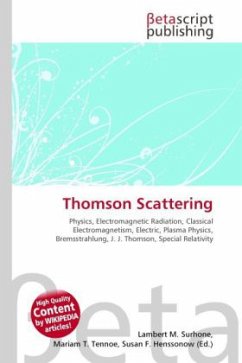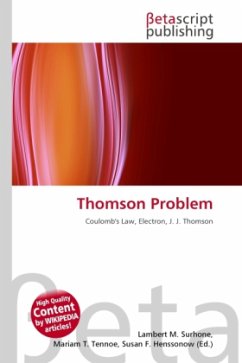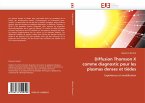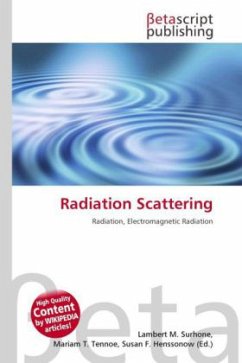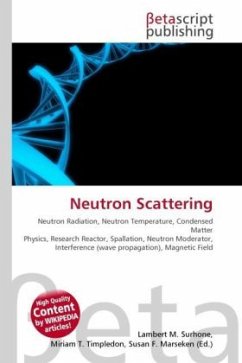High Quality Content by WIKIPEDIA articles! In physics, Thomson scattering is the elastic scattering of electromagnetic radiation by a free charged particle, as described by classical electromagnetism. The electric field of the incident wave accelerates the particle, causing it to in turn emit radiation at the same frequency as the incident wave, and thus, the wave is scattered. Thomson scattering is an important phenomenon in plasma physics and was first explained by the physicist J.J. Thomson.As long as the motion of the particle is non-relativistic (i.e. its speed is much less than the speed of light), the main cause of the acceleration of the particle will be due to the electric field component of the incident wave, and the magnetic field can be neglected. The particle will move in the direction of the oscillating electric field, resulting in electromagnetic dipole radiation.
Bitte wählen Sie Ihr Anliegen aus.
Rechnungen
Retourenschein anfordern
Bestellstatus
Storno

